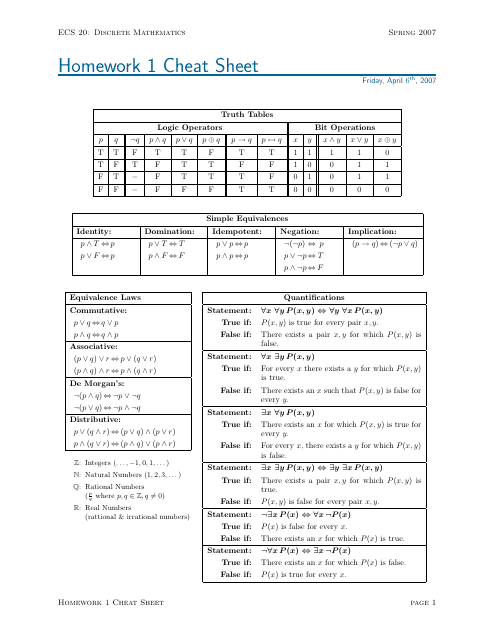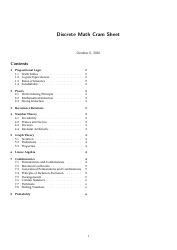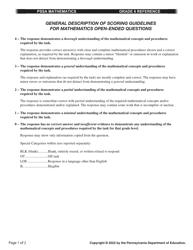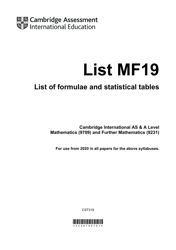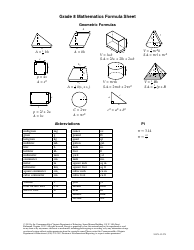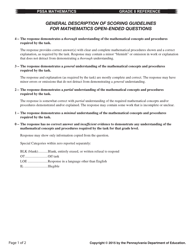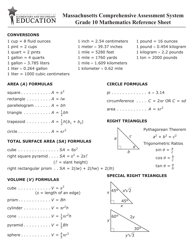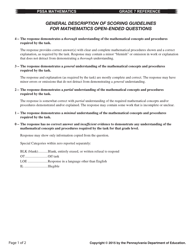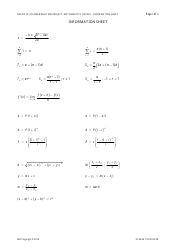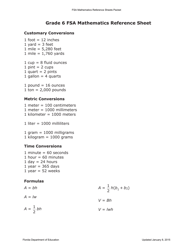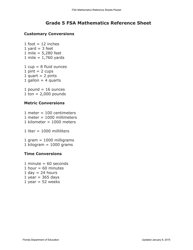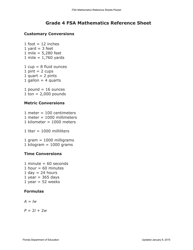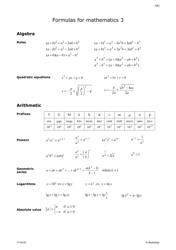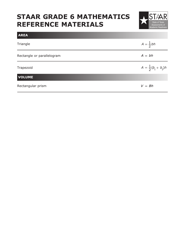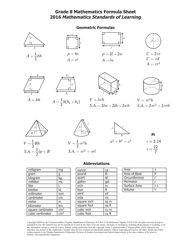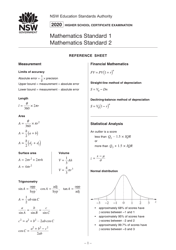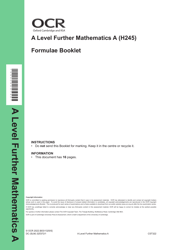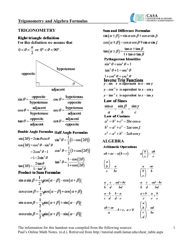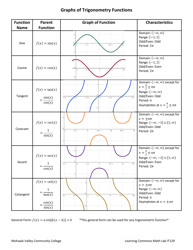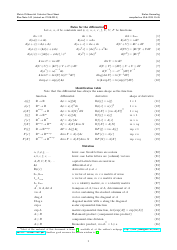Discrete Mathematics Cheat Sheet
A Discrete Mathematics Cheat Sheet is a condensed summary of key concepts, formulas, and techniques used in discrete mathematics. It serves as a quick reference guide for students or professionals studying or working in fields that require understanding discrete structures and algorithms.
FAQ
Q: What is discrete mathematics?
A: Discrete mathematics is a branch of mathematics that deals with mathematical structures and objects that are fundamentally discrete rather than continuous.
Q: What are some examples of topics in discrete mathematics?
A: Examples of topics in discrete mathematics include logic, set theory, combinatorics, graph theory, and algorithms.
Q: Why is discrete mathematics important?
A: Discrete mathematics provides the foundation for many areas of computer science, cryptography, operations research, and other fields that deal with discrete structures and algorithms.
Q: What is a set in discrete mathematics?
A: In discrete mathematics, a set is a collection of distinct elements.
Q: What is logic in discrete mathematics?
A: Logic in discrete mathematics deals with reasoning and the study of formal systems of inference.
Q: What is graph theory?
A: Graph theory is a branch of discrete mathematics that studies the properties and applications of graphs, which are mathematical structures used to model relationships between objects.
Q: What are some applications of discrete mathematics?
A: Discrete mathematics has applications in various fields, including computer science, cryptography, operations research, network design, and data analysis.
